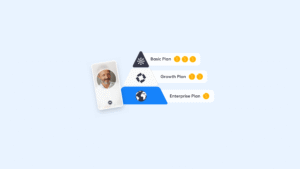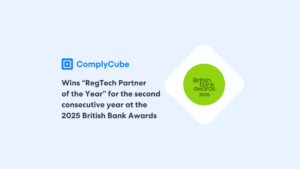Sanctions Screening is critical in global efforts to fight money laundering and terrorist financing. It refers to the process of methodically checking that people, companies, and transactions are in line with government and international organisations’ regulations. This crucial process consists of global sanctions check, which involves carefully cross-checking data against sanctioned party lists, helping to uphold the integrity of global commerce and compliance frameworks.
In this blog, we’re responding to some of your most frequently asked questions about Sanctions Screening. We’ll examine the most common reasons why an entity can face sanctions and discuss how you can identify whether a person or company you are doing business with is sanctioned.
What is a Global Sanctions Check?
Frequently used interchangeably with Sanctions Screening, Global Sanctions Check is a preventative action that one takes in order to ascertain whether an individual or entity appears on sanction lists. In other words, it’s the act of proactively screening and identifying whether someone or an entity is on a sanctions list through carrying out diligent due diligence into their history and whether they’re prohibited from doing certain things due to their involvement in illegal activities such as fraud, money-laundering, terrorism, drug trade, among others.
As of 2024, there are over 70,000 unique sanctioned persons globally, marking a massive 370% increase from 2017.
The complexity and breadth of sanctions regimes have grown in recent years, making it vital for organizations to remain alert and informed about the latest sanctions updates.
Why Do Companies Face Sanctions?
When determining whether a company has been sanctioned, it’s important to consider the many factors that can lead to this outcome. Sanctions can stem not just from a company’s own behaviors but also from its connections to specific territories or sectors that fall under wider economic sanctions. Here are the common reasons a company may face sanctions:

1. Anti-Money Laundering (AML) Violations
- Companies can be sanctioned if they lack strong Know Your Customer (KYC) and Customer Due Diligence (CDD) practices. Other factors include failing to adequately monitor or report suspicious activities and lacking solid measures to detect and prevent money laundering. Being involved in illegal schemes can also lead to serious repercussions.
2. Financial Crimes
- Involvement in various financial crimes like fraud, bribery, and insider trading can lead to sanctions. Actions such as money laundering, tax evasion, or financing terrorism can seriously harm a company’s standing. Additionally, cybercrimes targeting financial systems and personal information can also attract attention and potential sanctions.
3. Human Rights Violations
- Companies may face sanctions for significant violations of human rights, including acts like genocide, torture, or unjust arrests. Other infractions can include overlooking economic, social, and cultural rights, human trafficking, or labor exploitation. Environmental damages that go against local regulations can also bring about sanctions.
4. Terrorism-Related Activities
- Providing aid to terrorist groups or engaging in transactions related to planning or carrying out terrorist attacks can result in tough sanctions. Some businesses even go so far as to mask their legitimate operations to support funding for terrorism.
5. Violating Trade Embargoes or Export Controls
Companies that engage in trade with sanctioned parties export restricted products without the right permissions, or bypass embargoes using intermediaries or false documents can also face significant consequences.
How to Identify Sanctioned Businesses
Checking Global Sanctions List
The first step in determining a business’s status is to look at the official sanctions lists put together by reliable organizations. Some key resources to consider include:
- United Nations Security Council (UNSC) Sanctions List
- European Union (EU) Consolidated Sanctions List – Managed by the European External Action Service (EEAS)
- U.S. Sanctions – Managed by the Office of Foreign Assets Control (OFAC)
- UK Sanctions List – Managed by the Office of Financial Sanctions Implementation (OFSI)
- Sectoral Sanctions Identifications List – Part of the consolidated sanctions lists enforced by OFAC
Leveraging Compliance Software
When it comes to compliance, having the right software can make all the difference. There are plenty of situations where a party might be sanctioned in a particular country, and without the right tools, it can be tough to keep track of everything.
Take ComplyCube, for instance. The all-in-one AI-driven platform collaborates with various government and regulatory bodies to ensure that data is consolidated quickly and easily, right at your fingertips. Many businesses have reported onboarding clients over 98% faster, with checks taking less than 30 seconds. With an extensive database of over 3,000 global data points and its unique precision algorithm and technology, ComplyCube can help you confidently and accurately ascertain that the clients you’re working with are not at risk.
Benefits of Leveraging ComplyCube for Sanctions Screening
Leveraging compliance software like ComplyCube’s allows businesses to streamline their compliance operations rapidly while staying compliant with changing regulations worldwide.
- ComplyCube’s advanced machine learning and proprietary AI algorithm instantly checks businesses against multiple official sanctions lists (e.g., OFAC, EU, UN, UK, etc.) in real-time.
- Alerts you if a business gets sanctioned after your initial check, reducing compliance risks.
- Goes beyond sanctions and checks for Politically Exposed Persons (PEPs), adverse media, and watchlists.
- Automating the verification process reduces manual work, making it easier to comply with regulations like AML (Anti-Money Laundering) and KYC (Know Your Customer).
- Provides detailed logs for compliance audits, ensuring regulatory transparency.
How Do You Know if Someone Is Subject to Sanctions
While sanctions often target specific geography and large corporations, individuals can also be affected. The most common reasons for an individual to get sanctioned can include:
- Narcotics trafficking
- Terrorism
- Human rights violations
- Weapons proliferation
- Political disruption
- Human trafficking and people smuggling
- Financial crime
- Transnational organized crime
Corruption

Checking if a person is sanctioned follows the same process as checking if a company or territory is sanctioned. However, when it comes to companies, you’ll need to search for the company name along with its identifiers, such as registration numbers, business addresses, or legal entity identifiers. It’s also crucial to consider subsidiaries or related companies, as sanctions may also apply to them. This is where third-party screening tools like ComplyCube can make the process easier.
In addition, ongoing due diligence is essential to ensure compliance. This means consistently monitoring, reporting, and identifying new risks, including sanctions, fraudulent behavior, and illegal activities.
How Do You Know If a Country Is on the Sanctions List?
While sanctions are commonly placed on specific organisations and individuals, they can also be imposed to restrict certain countries from engaging in transactions with one another. The scope of the sanction can vary to affect an entire nation or specific entities in that country.

Some of the Most Common Cases Include
The Case of US Embargo and Targeted Sanctions Against Cuba
Under the 1958 U.S. embargo, Cuba has been classified as sanctioned by the US government. This means individuals are generally prohibited from making transactions or delivering items in Cuba unless otherwise provided with a comprehensive license. There are also trade and financial trading restrictions. The EU and UN do not have broad sanctions on Cuba, and in fact, the UN has been trying to oppose the US embargo with little to no change.
The Case of Iran Sanctions for Human Rights Violation
Due to involvement in human rights violations, as well as the violation of the 2015 Iran Nuclear Deal, Iran has been imposed sanctions by multiple jurisdictions, including the UN, US, UK, and the EU. The US has placed restrictions on oil, financial transactions, and banking in Iran, including narrower sanctions targeted at specific officials. The EU and UK have imposed Iran’s involvement in nuclear programs, imposing broad financial restrictions and sanctions.
The Case of North Korea and Its Growing List of Sanctions for Nuclear Defiance
North Korea has been found to involve itself in nuclear testing repeatedly, and illicit activities such as crypto crime have found themselves being sanctioned by many jurisdictions too. The UN has placed an arms embargo, including banning weapons sales and imposing importing and exporting restrictions on items like oil, travel, and coal. The U.S. Sanctions prohibit virtually all trade and financial transactions and place secondary sanctions on any company or country that is in North Korea. The EU and UK Sanctions align with UN restrictions but also ban financial services and business with investments.
Consequences of Overlooking Sanctions for Financial Institutions
Sanctions compliance is vital for financial institutions and businesses operating in the financial sector and beyond. Businesses, including those in e-commerce, retail, and telecom, must conduct thorough sanctions checks to avoid financial crime, money laundering, and terrorist financing. Without a proper sanctions screening process, companies may risk engaging with sanctioned entities, individuals, and politically exposed persons (PEPs), which can lead to heavy fines, reputational damage, and restrictions on international trade.
Foreign financial institutions subject to financial sanctions must align their screening processes with key regulatory authorities, including the United Nations, the European Union, and government agencies. Compliance with the sanctions list requires access to accurate sanctions data to detect potential matches and prevent violations. The key international organizations maintain major sanctions lists, including the Foreign Sanctions Evaders List, the Sectoral Sanctions Identifications List, and the Specially Designated Nationals (SDN) List.
Fortify Your Sanctions Screening With ComplyCube
Failure to comply with sanctions can lead to blocked transactions and even the loss of correspondent accounts. Companies must integrate advanced screening tools into their existing systems to mitigate these risks. Transaction and PEP screening are crucial in identifying high-risk entities while minimizing false positives. Businesses should leverage fuzzy logic to refine their screening process and enhance due diligence efforts.
Furthermore, the consequences of ignoring sanctions compliance can go beyond financial penalties and might even lead to unintentional assistance of mass destruction, arms embargo, and forbidden trade within restricted territories. The international community collaborates to prevent threats, and businesses must comply with screening requirements to protect trade, entities, and businesses from legal and financial repercussions. Due diligence in the compliance process is a regulatory mandate and a safeguard against global threats. Speak to the team.




